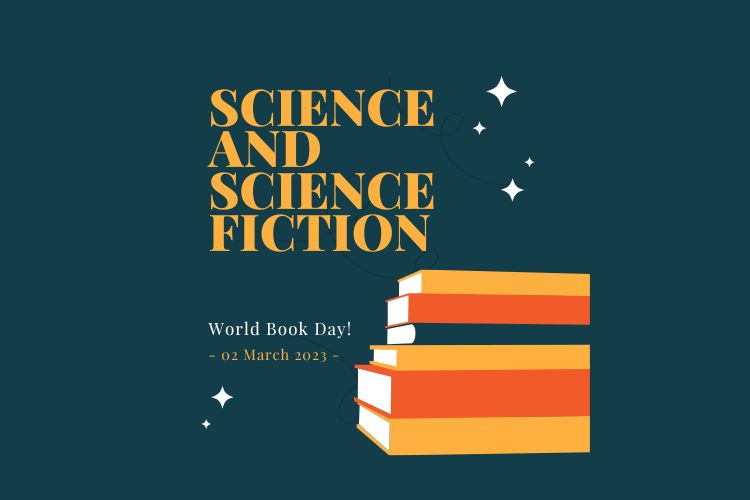It’s World Book Day! To celebrate I’m going to take a look at some popular science fiction to see if there’s any real science to be found hidden amongst the metaphors. It is often said that the truth is stranger than fiction but when it comes to science and science fiction the two can go hand in hand.
First let’s travel back in time to 1818, the year Mary Shelley’s infamous Frankenstein was published. Often considered the first science fiction novel, the story sees a man-made ‘monster’ brought to life by a bolt of lightning. At first glance this seems firmly rooted in fiction, but what does a defibrillator do if not restore life with the power of electricity? As it turns out, Frankenstein was both inspired by, and has inspired, major advances in both physics and medicine.
In 1803, just 15 years before the publication of Frankenstein, the effects of electricity on the body were illustrated in a public display whereby the corpse of a prisoner was electrocuted and shown to move, almost as if alive. The demonstration was performed by the nephew of Luigi Galvani, the original discoverer of the phenomenon, and after whom Volta later coined the term ‘Galvanism.’ In the 1831 preface to her novel, Shelley directly mentions Galvanism as inspiration for her story. The story brought widespread awareness of the phenomenon, later inspired popular adaptions for the big-screen, and eventually sparked curiosity in Earl Bakken which would lead him to invent the first wearable pacemaker.
Turning now to another big name in science fiction, H.G. Wells, often hailed as the father of the genre. Wells was well-versed in science, he studied biology at university, became friends with a number of scientists, and published 25 papers in Nature over the course of 50 years. While he often included outlandish or improbable scientific ideas in his fiction, not least his titular time machine, he also successfully predicted many scientific advancements. Genetic engineering, as features in The Island of Doctor Moreau, is now a reality.
Perhaps Wells’ most famous novel is The War of the Worlds, popularised by Orson Welles’ radio broadcast notorious for sending listeners into a panic. Heat-rays (lasers?) are described as a deadly weapon, but what really caught the attention of Robert Goddard were the vehicles used to transport the invading Martians to Earth. Goddard is credited with inventing the first liquid-fuelled rocket. In a letter to Wells he described the “deep impression” that the book left on him which led him to study physics and later design the rocket.
As has become clear, sometimes the line between science and science fiction is blurred. One inspires the other and inspires the other once more. Today especially, on World Book Day, I think it is important to recognise the role of fiction, and especially science fiction, on the development of the modern world.
Finally, I felt I couldn’t write about books without leaving you with some recommendations, so here are some of my personal favourites. For something more speculative, I recommend Einstein’s Dreams by Professor Alan Lightman, an American Physicist. The book, as the title may suggest, follows the dreams of Einstein as he works on his theory of relativity, taking us through world after world, in each of which time works differently. For some short-but-sweet science fiction I recommend any of Becky Chambers’ novellas. Her Monk and Robot duology, following the duo on their adventure through the wilderness, is perfect for any final-year students as a reminder that it’s okay not to have it all figured out. Her futuristic standalone To Be Taught If Fortunate is also excellent and is a great choice for fans of Interstellar. It is so well researched that it thanks the University of Edinburgh’s own Professor of Astrobiology, Charles Cockell, in the acknowledgments!



